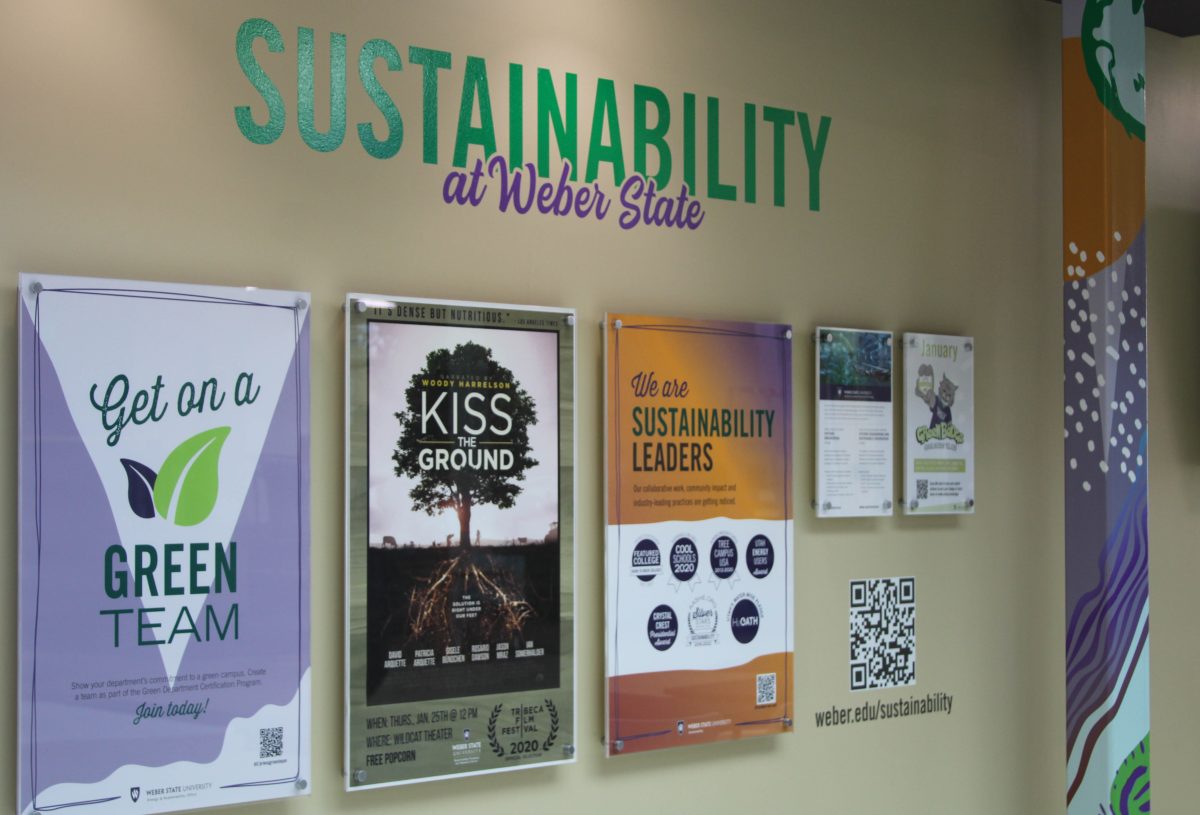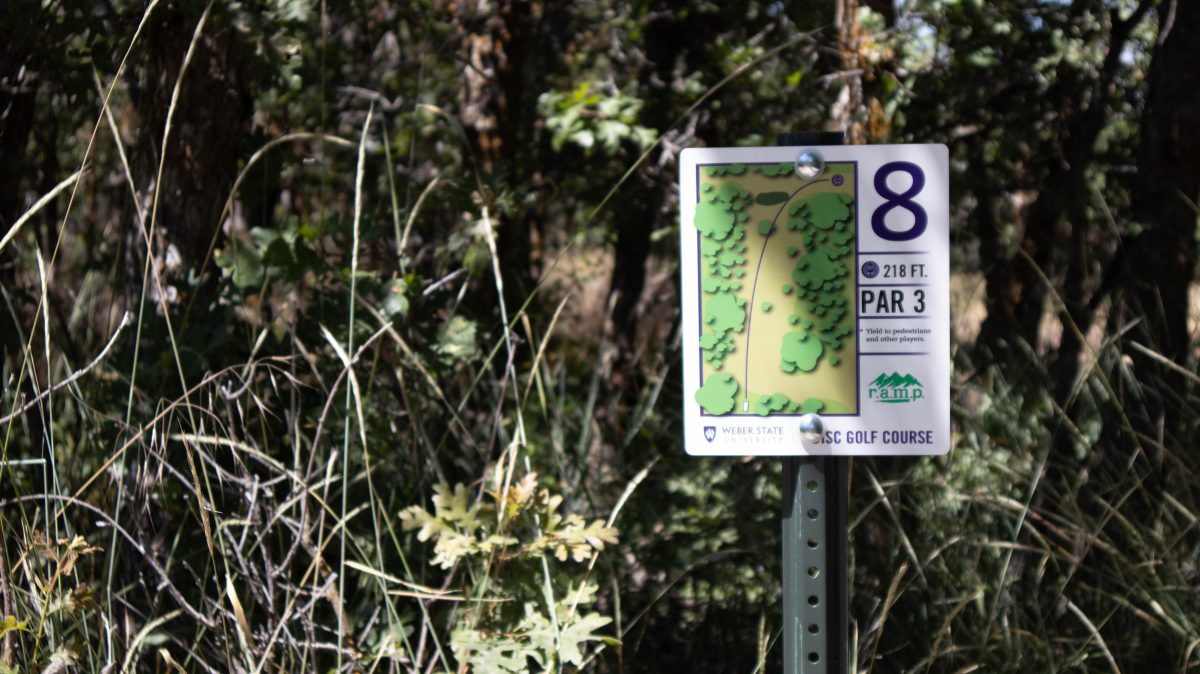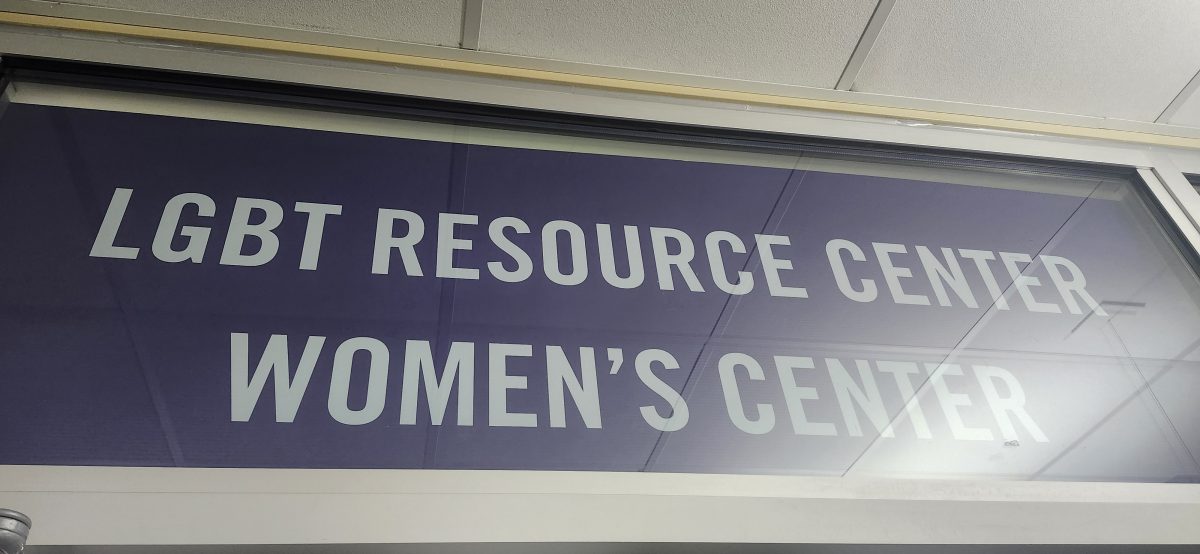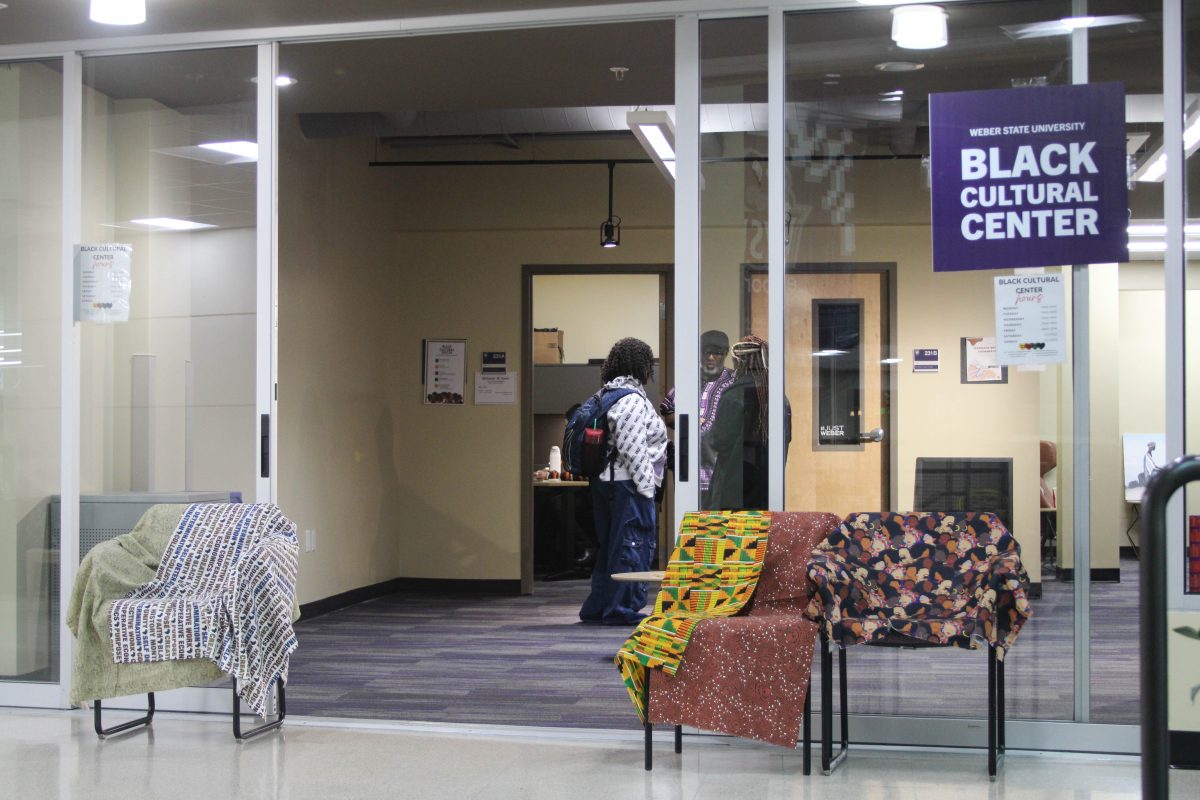One way to volunteer at Weber State University is with the Food Recovery Network. This nationwide organization has a Weber State Chapter, located in the Energy and Sustainability office. The network works with Weber Dining to collect excess food and take it to homeless shelters in the community.
“We get our food from Weber dining, any food that wasn’t given to students, or a lot of times we get leftovers from events that were on campus,” Kaylee Anderson said.
Anderson has been president of WSU’s Food Recovery Network since June of 2023.
Anderson and volunteers collect, weigh and package the would-be food waste for distribution. It is then loaded into a campus vehicle and transported to local shelters, such as the Lantern House or Mountain Rescue Mission.
During the fall 2023 semester, the network recovered 3,217 lbs of food, the equivalent of 2,600 meals. The club has already recovered 447 lbs of food this semester.
“Reducing the amount of food waste that we have, in turn reducing the amount of emissions…like, CO2 and methane,” Anderson explained.
This reduction directly impacts the sustainability goals set by Weber State University.
The network also impacts WSU’s campus by composting a lot of the food that they are unable to redistribute, which helps the campus reach its zero waste goals.
“What we do is focus on food sustainability and food waste, and helping reduce food insecurity in our community,” Anderson said. “It’s helping reach a lot of the university’s zero waste goals.”
The Weber Food Recovery Network is a great way for students to log volunteer hours. The club meets every Tuesday and Thursday at noon.
“It feels really good to be involved. It’s really, really fun to do. It’s just hanging out in the kitchen, doing a lot of good stuff. You’re giving food to people who really need it,” Anderson said.
The network also works with volunteers at various sustainability events within the community.
Student volunteers also get more than just service hours when they work with the Food Recovery Network. For example, each time a student volunteers, they receive a $15 Smith’s gift card.
Students interested in getting involved can get more information and register on the club’s GivePulse page, https://givepul.se/d381hf
















